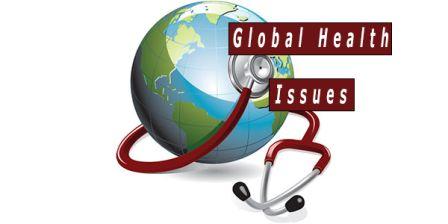Marijuana, having the scientific name cannabis, is a drug that comes from the cannabis plant. This drug has been termed as a psychoactive drug due to the physical and mental effects it brings about on its users, in the form of medical marijuana.
Medical Marijuana and its Legalization
Patient-centered medicine is a practice whereby the center of attention is provided to a patient regarding his or her needs or concerns rather than the personal diagnosis, opinions and judgmental actions of the doctor.
A patient-centered approach is applied with close regard to the need, values and preferences of the patient as opposed to doctor-centered approach. In this perspective, the doctor has to consider legal, ethical and organizational structure before administering specific forms of treatment on a patient.
The Food and Drug Administration (FDA) research on the contents of marijuana found out that the drug contains more than four hundred kinds of chemicals.
Out of these, the binding compound is delta-9-tetrahydrocannabinol (THC) which is a psychoactive chemical element that aids in medicinal purposes such as relieving severe pain, the treatment of certain chronic diseases such as killing cancer cells and reducing nausea.
FDA also notes that THC contains more than a hundred and thirteen cannabinoids which aid in relieving a patient’s blood pressure through brain relaxation especially in surgery.
Various states in the U.S have legalized the use of marijuana for medicinal purposes. For instance, the state of California authorized the use of marijuana for medical purposes. Thereafter, more than 28 other states in the U.S have legalized the use of cannabis for medicinal purposes.
The medicinal use of marijuana is prohibited by a majority of legislation in its administration in children under the age of eighteen years.
For patients who are aged eighteen and above, the doctors have to observe patient-centered rules and regulations to ascertain whether a patient agrees to be induced with the drug or not?
Various instances have been reported on the violation of the freedoms and rights of patients by doctors.
The U.S president Donald Trump has supported this notion through his stand. In February 2016, while being interviewed by Bill O’Reilly of Fox News, Trump claimed that he would a hundred percent support the dynamic use of marijuana for medicinal purposes.
Besides, Trump claims that medicinal marijuana had ended up saving more lives in contradiction to the harmful effects it brings about. He also claimed that those who were opposing his bid for effective use of marijuana for medicinal purposes were propagandists who do not value the lives of others.
If such a law on the use of medical marijuana is enacted, the patient-centered problem will become rampant, and patients’ needs and values will be violated.
Ethical, Legal and Regulatory Concerns
In medicine, ethics is termed as a situation in which the doctor avails medicinal prescription without advertising to the general public. In many countries across the world, marijuana is used for medicinal purposes without the advertisement of the drug to the public, i.e. medical marijuana. This is because of regulatory measures on the availability and use of the drug.
Cannabis side effects have been found to be catastrophic when an individual has a long-term dependency on it.
Some of the adverse side effects of marijuana use include male sexual dysfunction, suppression of the body’s immune system, the development of psychosis condition, reduction in brain functions and development of testicular cancer in males among others.
This is the primary reason as to why different governments have initiated ethical measures with the aim of utilizing the health benefits of marijuana and regulating its availability to the significant public.
If unethical actions are put in place, the drug medicinal drug will end up in chemists and other drug stores making it easily accessible to the public. This might lead to abuse of the drug leading to a dysfunctional society with severe health conditions. To ensure this does not happen, severe penalties have been laid down by various nations on the abuse of the drug.
For instance, in the U.S, the Department of Justice (USDOJ) has laid sown stringent measures in its Marijuana Enforcement Memorandum.
The law states that illegal use of Marijuana is a federal crime and anyone who pleads guilty on the possession and use of marijuana without proper validation.
Regulatory measures by legal lawmaking bodies ensure that medical marijuana is not only ethically induced in the form of neither patient-centered nor doctor-centered will but under the authenticity of the law.
There have been major dissensions from world health bodies such as the World Health Organization (WHO), the Pan African Health Organization (PAHO) and World Bank on the effects of medicinal cannabis.
Moreover, the United Nations International Children’s Fund (UNICEF) and United States Agency for International Development (UNICEF) have had discussions on the health benefits as well as adverse effects of marijuana for medical purposes.
The effects of medical marijuana, when used in hospitals and other health institutions are numerous. An investigation on the effects of therapeutic marijuana across the world is necessary. It also expound on the different legislation that are based on the use of medical marijuana for different purposes.
Bottom Line
Marijuana has proven to be an important drug when it comes to its benefits in medicinal use, i.e. medical marijuana.
From the reduction of nausea to killing of cancer cells and relieving of a patient’s blood pressure during surgical operations, its negative effects are felt by the society.
If doctors adhere to patients’ values and needs, patient-centered problems will be solved.


